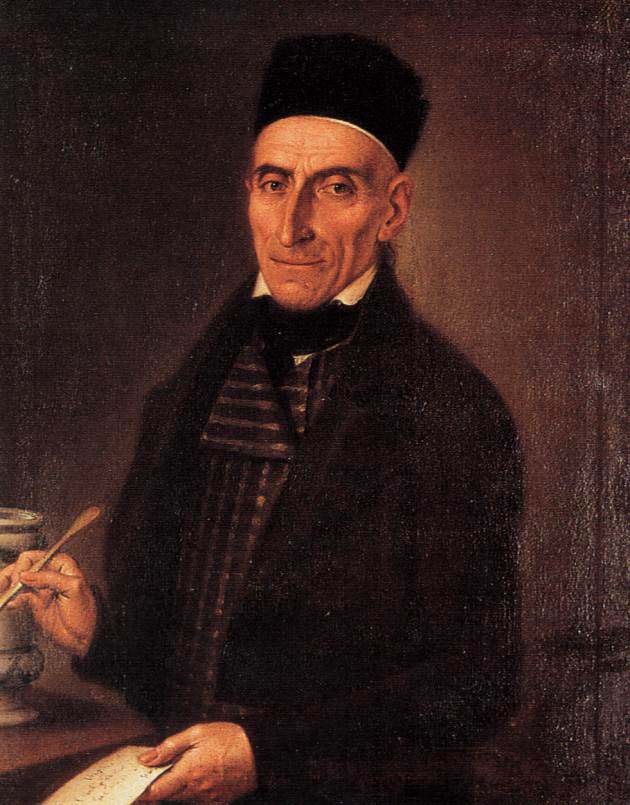
Burning of the Libro D’Oro (1797)

The Treaty of Campoformio signed on 18 October 1797 dismantled the Venetian Republic and awarded the Ionian Islands to France. Gentili and his French expeditionary force of 1500 Frenchmen, 600 Venetians and boats captured in Venice, and took control of the Ionian Islands a few months before on 26 June 1797 and rapidly formed French prefectures under the name of “Départements français de Grèce” (French provinces of Greece). Zakynthos was made part of the French départment Mer-Égée.
Initially, there was strong domestic enthusiasm for the French in Zakynthos. A group of armed men led by Spyro Psimaris took down the flag of St Mark from the castle before the arrival of French troops and the French consul, Guys managed to form a guard before the arrival of Gentili’s troops. Most of the locals were relieved to be rid of the Venetians and were hoping political and social liberalisation would be ushered in. They also believed the French would provide a bulwark against the menacing Ottoman Turkish Empire. Even the peasants (the so-called Villani according to the Venetians) made their appearance in Zakynthos town demanding the lowering of usurious interest and taxation foisted on them by the Nobili. Ironically, some of these large landowners were ardent supporters of the ideas of the French Revolution. Importantly, this was the first time this class had entered Zakynthian politics after centuries of oppression under the Neapolitans and the Venetians. Gentili met many of their demands.
However, it was quite clear early on that the French were not interested in giving the islands self-determination in accordance with the principles of the French Revolution and the desires of the Ionian Islanders; but, occupation as exemplified by the letter Napoleon sent to Gentili:
”You will make every effort to win the sympathy of the people there, since you have to govern them … If the inhabitants there declare a willingness to be independent, you have to deal with this desire.”
But this was not to last. And even very early on during French rule support for a rival power was evident. For example, 20 days after their arrival, a crowd of Zakynthians chanted for the Russian emperor and raised the Russian imperial flag in Zakynthos town. The French garrison had to disperse the crowd by force.
The French initially tried to organize the administration of the Ionian Islands according to their own revolutionary standards that included the greater participation of lower classes than Venetian rule. In Zakynthos doctors, lawyers, former so called Nobles, Cittadini, Popolari and clerics from the Orthodox and Catholic churches were included in a 40-member interim governing council. Importantly, this council included Antonios Martinengos (1754–1836) who was to play a key role in Zakynthian politics for the next 20 years or so. Furthermore. the civil and criminal courts were reorganised, a jury system was gradually introduced, the first public schools were established and the first printing presses were set up. The Ionian Islanders even adopted the French Revolutionary Calendar in official documents dating back to the 1st year of Freedom and establishing a 4 August national holiday.
However, the initial Zakynthian enthusiasm for the French rapidly dissipated primarily due to discontent about greater levels of taxation, the method of tax collection and the habit of French authorities borrowing from local merchants and failing to later meet their obligations. Also, promises of self-government did not come to fruition. But what really bothered the locals was the growing contempt French had for their institutions, like the Orthodox religion, its Church and other traditions. Ionians Islanders including Zakynthians mobilised by Nobili who had lost their privileges began to conduct public protests and form political associations to disseminate new ideas against French rule. These activities were also noticed by the Russians, the British and the Ottoman Turks.